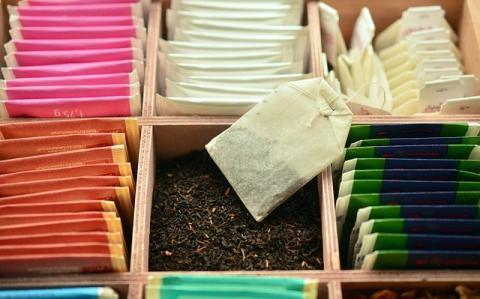
People who bounce along to more frenetic pitches tend to prefer coffee because the muddy joe revels in almost twice the caffeine intake as tea. Coffee ingestion’s aftermath of a stupefying crash leaves one dumbfounded and grasping for thoughts that often don’t immediately make themselves decipherable, like unbeknownst life forms in the haphazard midst of reason’s approximation. (I am a writer— so I know!)
Many people can be categorized into either tea or coffee drinkers, each who swear by their elixir’s magic powers. I am a tea drinker, and I’m here to convince you to become one, too!
Besides water, tea is the most popular beverage on the planet— right before beer! The Emperor of China allegedly discovered tea five thousand years ago. Tea leaves from an overhanging limb fell into his boiling water and he became curious! As priests and scholars in the Far East have used tea to meditate, pray, and stay awake, it has earned the reputation of a health elixir.
Tea is made from wilted and oxidized leaves of the Camellia sinensis plant. Tea contains polyphenols, concentrated antioxidants that siphon off free radicals and prevent cells from DNA damage.
Not ready to give up coffee and make the switch? Here are three teas you can add to your daily regimen that provide as many healing benefits as savory flavors:
Green Tea: Green tea is perhaps the most renowned medicinal tea, and has been used for centuries in holistic healing practices because of its dense medicinal compounds. The tea holds a plethora of antioxidants and other important compounds for maintaining optimal health. Green tea is quite adept at regulating levels of blood sugar, making it a favorite to aid those with diabetes. Green tea has also been shown to line the blood vessels, protecting the heart and cholesterol levels.
Black Tea: Black tea has the highest caffeine content. Interestingly, black tea’s antioxidant properties also make this tea very good for your heart, and may lessen the risk of stroke. You may even find your dentist sipping black tea – it’s known to reduce or slow the development of plaque on teeth, and provide a balance to overall oral hygiene. Black tea has also been shown to reduce stress levels after a long day.
White Tea: Because white tea is the least processed tea, it is believed that this tea contains the most antioxidants of any tea. White tea also offers antibacterial properties, which can aid in the healing process. Further, white tea’s antibacterial and antimicrobial properties can improve oral hygiene – like slowing tooth decay. White tea has also traditionally been referred to as having the ability to slow time: white tea’s antioxidants can combat wrinkles, can mitigate unhealthy diets, and is incredibly good for the skin.
My goodness, I do believe it is almost 2:00 p.m., English time. Without further ado, let us sip away!








